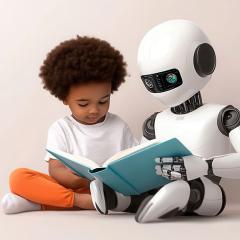The swift integration of generative AI and advanced automation in workplaces has ignited concerns about skill erosion and the loss of foundational knowledge. Dr. Tapani Rinta-Kahila from the University of Queensland Business School highlights these issues in a recent analysis, revealing the potential pitfalls of becoming overly reliant on technology.
Case Study: Over-Reliance in Accounting
Dr. Rinta-Kahila’s team examined an accounting firm that depended heavily on an automated fixed-asset accounting system. When the software was removed, the accountants struggled to perform their tasks manually, causing significant disruptions for clients. This scenario underscores the risk of losing essential skills due to prolonged reliance on automated systems.
Historical Context and Modern Implications
Skill erosion isn't a new concern. Similar worries arose during the industrial revolution when machinery began to replace skilled labor. Today, the spread of AI and decision-based technologies threatens to diminish critical thinking and analytical skills across various professions, leading to excessive dependence on these systems.
The Balance Between Technology and Human Skills
As technology continues to advance, it’s crucial to maintain a balance. Dr. Rinta-Kahila argues that certain critical skills must be preserved to ensure resilience. For example, airplane pilots need to retain manual control capabilities despite highly automated cockpits to handle emergencies effectively.
The Growing Value of Social Skills
In an increasingly automated world, social skills are becoming more important. These are challenging to automate and are essential for roles involving human interaction, such as customer service. While AI can perform routine tasks, humans provide the nuanced interactions that enhance service quality.
Preparing for a Tech-Driven Future
Looking ahead, professionals will need to develop stronger technical and digital skills. Dr. Rinta-Kahila emphasizes the need for higher AI literacy to prevent over-reliance on technology and to foster a deeper understanding of its capabilities and limitations.



